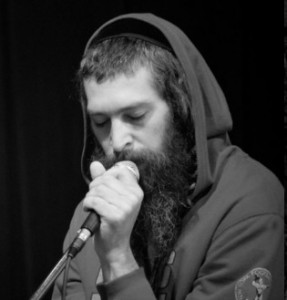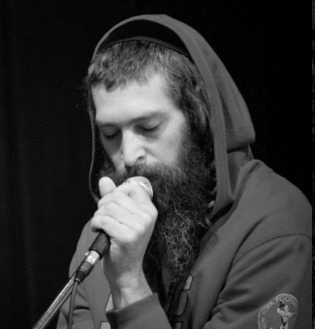
When one first hears Matisyahu’s music, a stereotypical reggae musician is pictured. Instead, this artist dons traditional Orthodox Jewish garb, such as a kippah (otherwise known as a yarmulke). Heavily influenced by his religion, Matisyahu is able to convey Jewish meaning in reggae music – but somehow integrate his beliefs into a universal theme. In his song “One Day,” the artist sings of world peace but also speaks of his faith in God: “I thank God I’m breathing/then I pray/don’t take me soon/cause I am here for a reason.”
Matisyahu, or Matthew Paul Miller, began as a rebellious teenager in West Chester, PA, who rejected the way he had been brought up and dropped out of high school after nearly burning down his chemistry class. He became a follower of the Grateful Dead and delved into heavy use of drugs. At this point, Miller realized he must find his mission in life or be lost.
A trip to the Rocky Mountains of Colorado brought him the realization of the existence of a God, and he further pursued this. In the fall of 1995, he enrolled in the Alexander Muss High School in Israel. At this school, he discovered and solidified his Jewish identity. Miller returned to his hometown, but found it difficult to keep up with his Jewish faith, and began to follow the band Phish on their tour. He found himself penniless and was forced to come home yet again.
From there, he moved to Bend, Oregon to take part in a wilderness school that heavily focused on music – this is where he began to develop his unique musical style of reggae, beatboxing and hip-hop blended together. Miller moved to New York City to enroll in an arts school and follow his deep passion for music and Judaism. Rolling these two into one provides Matisyahu with a distinct sound and an overall universal, peaceful message.
In an interview with Andpop, he was asked why most people are able to respect the religious aspect of reggae (unlike some genres such as Christian rock) and just consider it good music. He answered, “I think that typically in music like Christian rock, the message is… the number one goal and the music is seen as a way to get that message across. And you’re dealing with an ultimate truth… if you don’t agree with this, you’re going to hell. In reggae, I don’t think there’s ever that idea of ‘it’s this or nothing’… while Rastafari is heavily based in [reggae], I don’t believe they think it’s just one truth… it’s more about deriving inspiration from that, and music which is born around it, and less about trying to convince someone.”
Matisyahu recently shaved his famous beard on December 13, 2011. Once a great symbol for his religion, he stated on Twitter: “No more Chassidic reggae superstar. Sorry folks, all you get is me…no alias.”
Matisyahu is a true inspiration for many youth who may feel lost in their journey in life. His music shows that faith in God or even just faith in music can help someone to find their way; “All of my songs are influenced and inspired by the teachings that inspire me,” said Miller in an interview from 2006. “I want my music to have meaning, to be able to touch people and make them think. Chasidism teaches that music is ‘the quill of the soul.’ Music taps into a very deep place and speaks to us in a way that regular words can’t.”

Leave a Reply